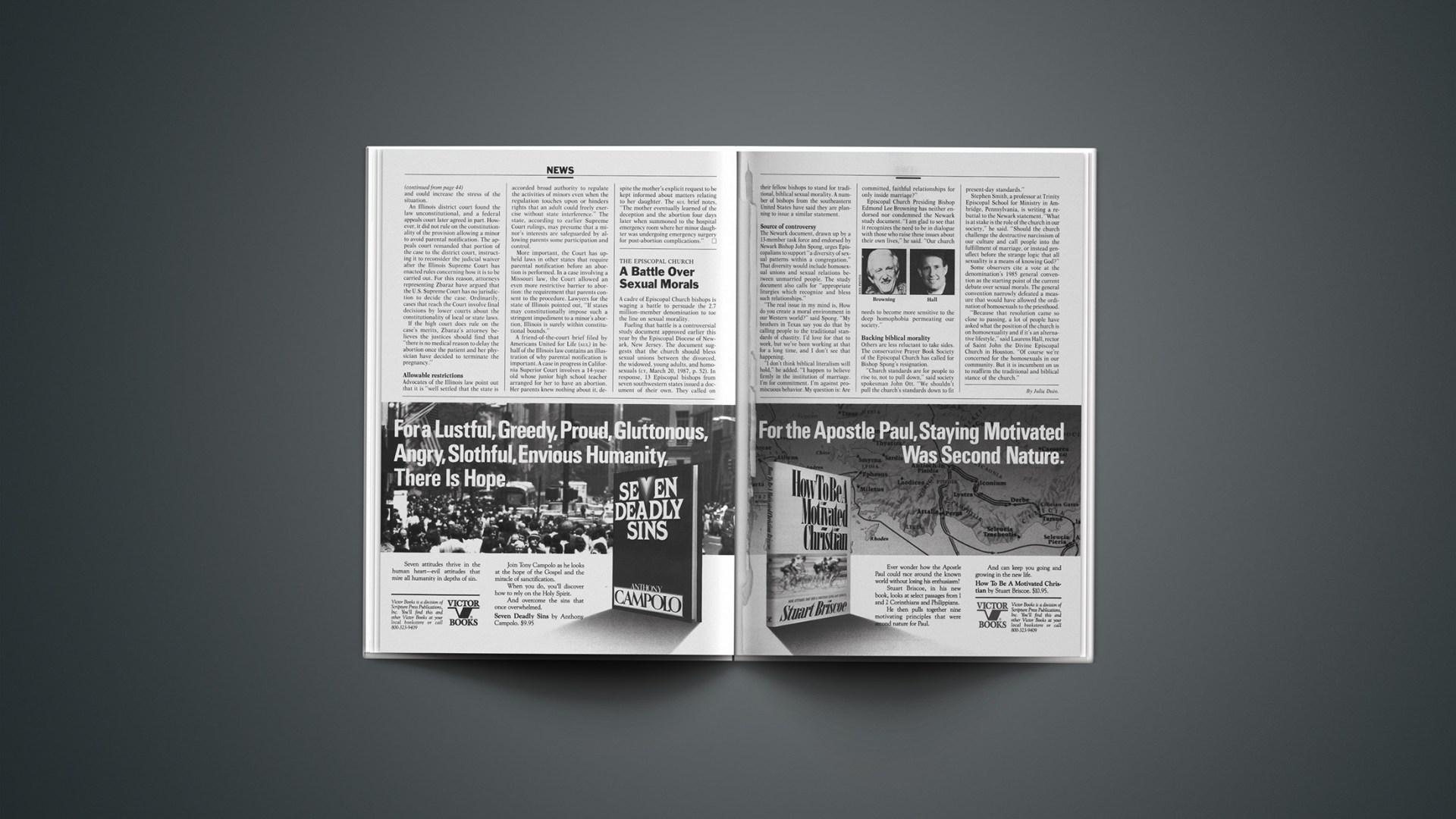A cadre of Episcopal Church bishops is waging a battle to persuade the 2.7 million-member denomination to toe the line on sexual morality.
Fueling that battle is a controversial study document approved earlier this year by the Episcopal Diocese of Newark, New Jersey. The document suggests that the church should bless sexual unions between the divorced, the widowed, young adults, and homosexuals (CT, March 20, 1987, p. 52). In response, 13 Episcopal bishops from seven southwestern states issued a document of their own. They called on their fellow bishops to stand for traditional, biblical sexual morality. A number of bishops from the southeastern United States have said they are planning to issue a similar statement.
Source of Controversy
The Newark document, drawn up by a 13-member task force and endorsed by Newark Bishop John Spong, urges Episcopalians to support “a diversity of sexual patterns within a congregation.” That diversity would include homosexual unions and sexual relations between unmarried people. The study document also calls for “appropriate liturgies which recognize and bless such relationships.”
“The real issue in my mind is, How do you create a moral environment in our Western world?” said Spong. “My brothers in Texas say you do that by calling people to the traditional standards of chastity. I’d love for that to work, but we’ve been working at that for a long time, and I don’t see that happening.
“I don’t think biblical literalism will hold,” he added. “I happen to believe firmly in the institution of marriage. I’m for commitment. I’m against promiscuous behavior. My question is: Are committed, faithful relationships for only inside marriage?”
Episcopal Church Presiding Bishop Edmond Lee Browning has neither endorsed nor condemned the Newark study document. “I am glad to see that it recognizes the need to be in dialogue with those who raise these issues about their own lives,” he said. “Our church needs to become more sensitive to the deep homophobia permeating our society.”
Backing Biblical Morality
Others are less reluctant to take sides. The conservative Prayer Book Society of the Episcopal Church has called for Bishop Spong’s resignation.
“Church standards are for people to rise to, not to pull down,” said society spokesman John Ott. “We shouldn’t pull the church’s standards down to fit present-day standards.”
Stephen Smith, a professor at Trinity Episcopal School for Ministry in Ambridge, Pennsylvania, is writing a rebuttal to the Newark statement. “What is at stake is the role of the church in our society,” he said. “Should the church challenge the destructive narcissism of our culture and call people into the fulfillment of marriage, or instead genuflect before the strange logic that all sexuality is a means of knowing God?”
Some observers cite a vote at the denomination’s 1985 general convention as the starting point of the current debate over sexual morals. The general convention narrowly defeated a measure that would have allowed the ordination of homosexuals to the priesthood.
“Because that resolution came so close to passing, a lot of people have asked what the position of the church is on homosexuality and if it’s an alternative lifestyle,” said Laurens Hall, rector of Saint John the Divine Episcopal Church in Houston. “Of course we’re concerned for the homosexuals in our community. But it is incumbent on us to reaffirm the traditional and biblical stance of the church.”










